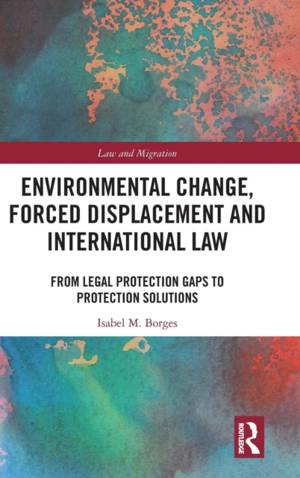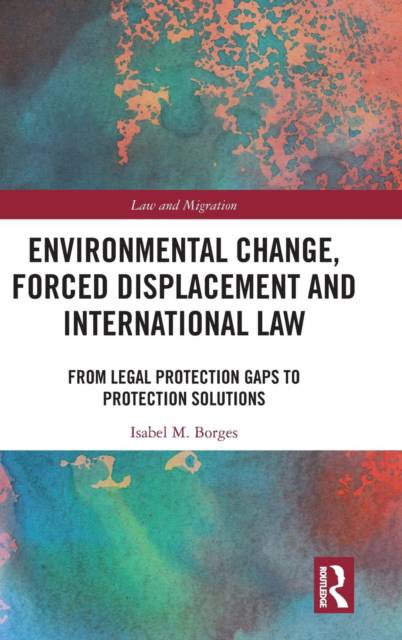
- Afhalen na 1 uur in een winkel met voorraad
- Gratis thuislevering in België vanaf € 30
- Ruim aanbod met 7 miljoen producten
- Afhalen na 1 uur in een winkel met voorraad
- Gratis thuislevering in België vanaf € 30
- Ruim aanbod met 7 miljoen producten
Environmental Change, Forced Displacement and International Law
from legal protection gaps to protection solutions
Isabel M BorgesOmschrijving
This book explores the increasing concern over the extent to which those suffering from forced cross-border displacement as a result of environmental change are protected under international human rights law. Formally they are not entitled to admission or stay in a third state country, a situation that has been identified as an international "legal protection gap".
The book seeks to provide answers to two basic questions: whether and to what extent existing international law protects cross-border environmental displacement, and whether and how existing formalized regional complementary protection standards can interpretively solidify and conceptualize protection for cross-border environmental displacement. The discussion outlines that the protection of the human person is not only an ex post facto obligation of states, but must be increasingly seen as an ex ante one. The analysis further suggests that the European Union regionally orientated protection regime can help states to consolidate an evolving protection paradigm of proactive and reactive measures being erected at the international level. It can also narrow the identified legal protection gaps. In so doing, it helps states to reconceptualise protection as a holistic and dynamic enterprise.
This book will be of great interest to academics in law, political science and human rights, policy makers and civil society organisations both at national and international level.
Specificaties
Betrokkenen
- Auteur(s):
- Uitgeverij:
Inhoud
- Aantal bladzijden:
- 258
- Taal:
- Engels
- Reeks:
Eigenschappen
- Productcode (EAN):
- 9781138560130
- Verschijningsdatum:
- 13/12/2018
- Uitvoering:
- Hardcover
- Formaat:
- Genaaid
- Afmetingen:
- 156 mm x 234 mm
- Gewicht:
- 571 g

Alleen bij Standaard Boekhandel
Beoordelingen
We publiceren alleen reviews die voldoen aan de voorwaarden voor reviews. Bekijk onze voorwaarden voor reviews.









